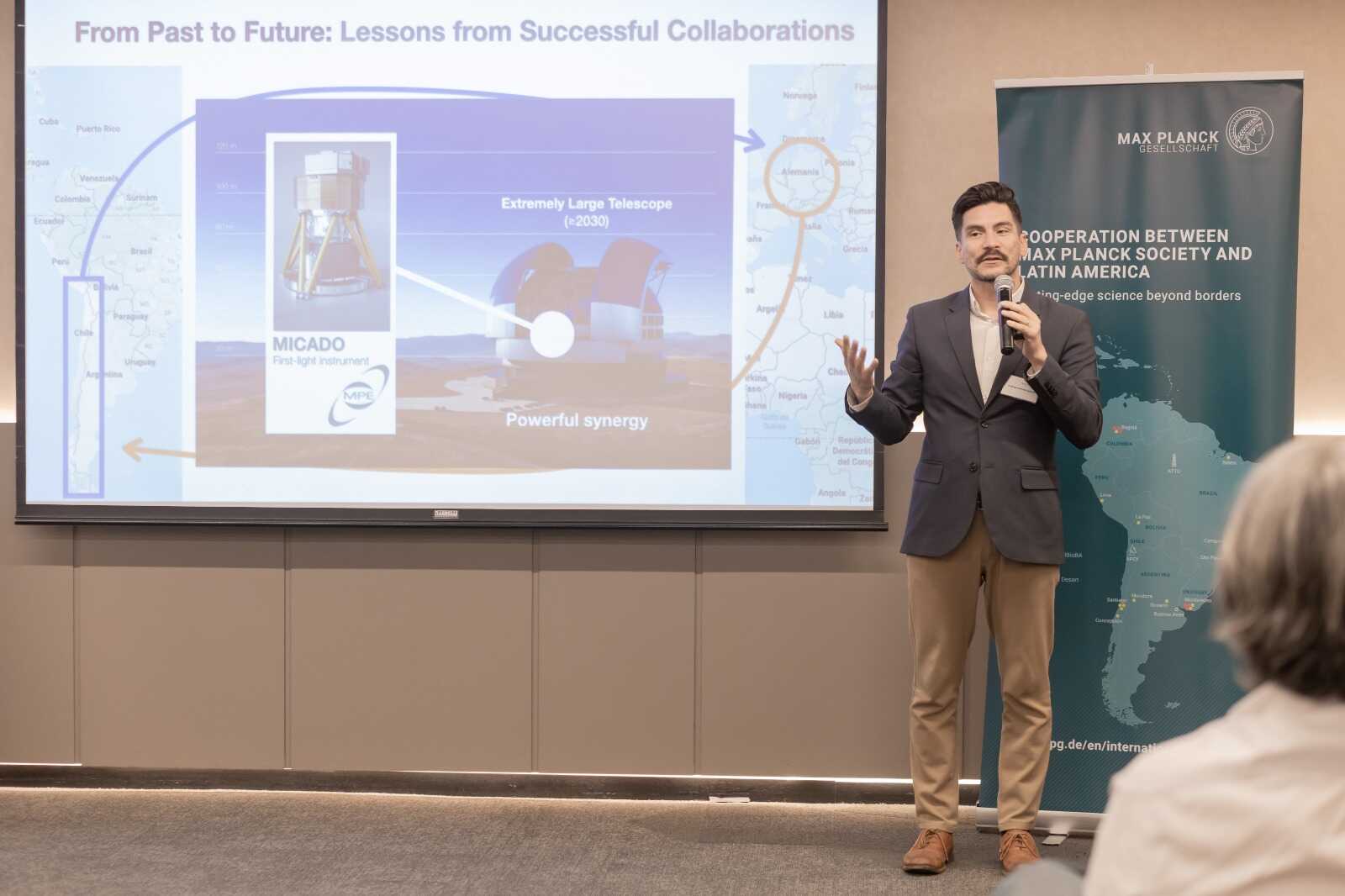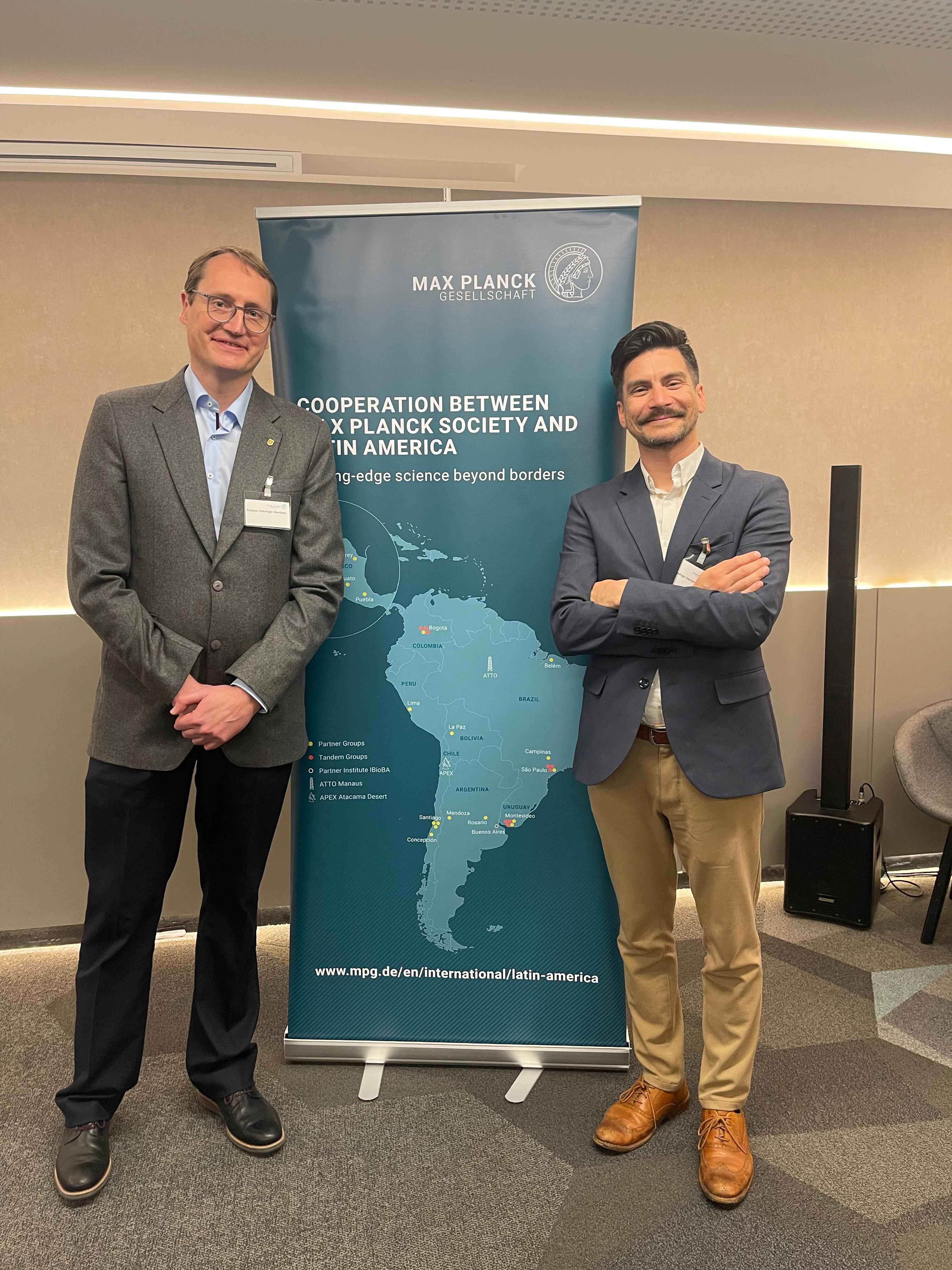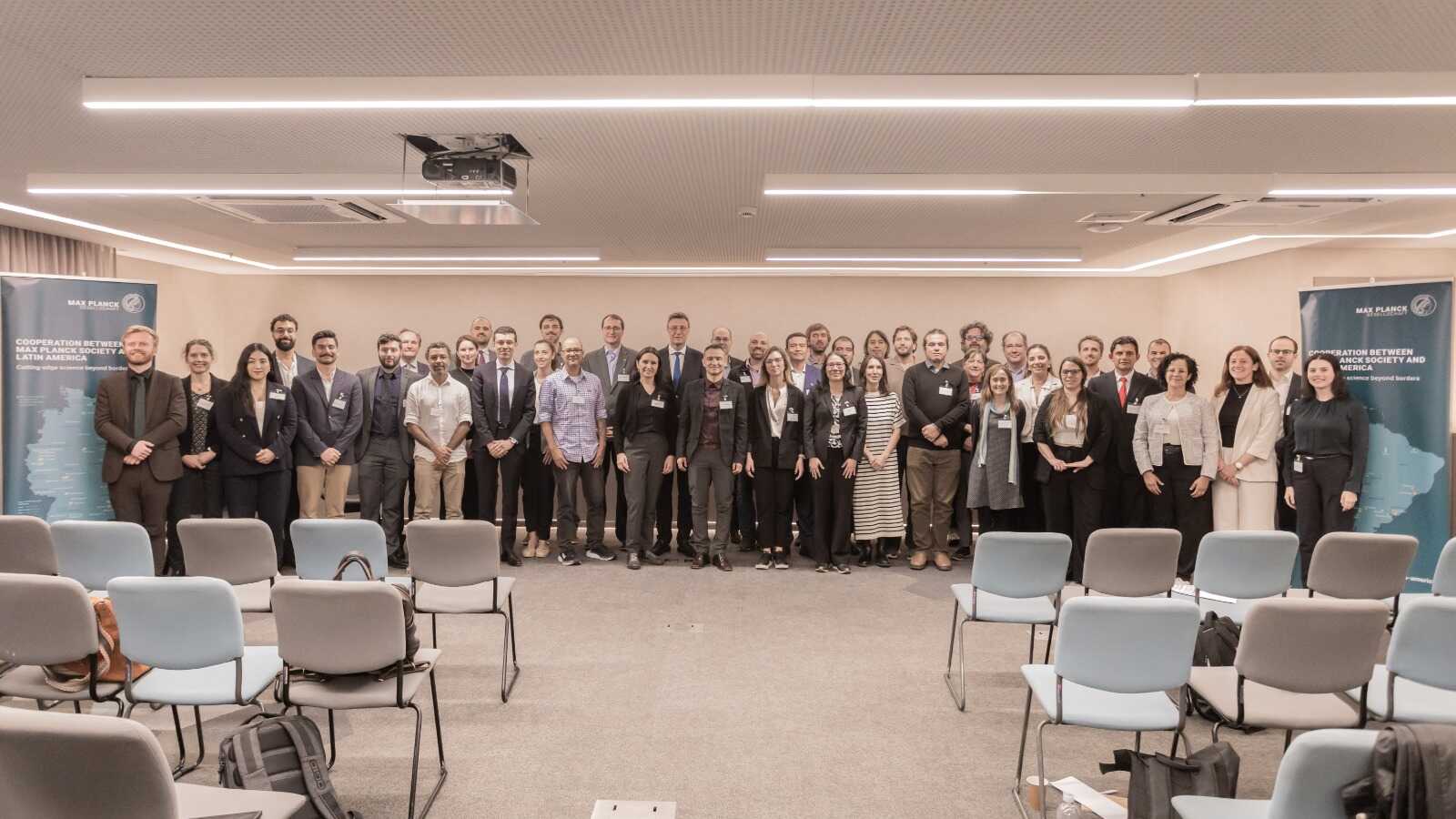
Concepcion, 17 October 2025
Professor Rodrigo Herrera Camus Represents Chile at Latin American Meeting of the Max Planck Society
Dr. Rodrigo Herrera, a faculty member of the Department of Astronomy at the University of Concepción, together with Dr. Esteban Vöhringer from the Faculty of Chemical Sciences, were the two Chilean representatives at the regional meeting of the Max Planck Society, held on October 9 and 10 in São Paulo, Brazil. The event brought together group leaders and young researchers to strengthen international scientific cooperation.
Of the five groups associated with the Max Planck Institutes in Chile, only two were selected to represent the country in São Paulo. Both belong to the University of Concepción: Dr. Herrera, from the Department of Astronomy at the Faculty of Physical and Mathematical Sciences, who leads the group “The Baryonic Cycle in Galaxies,” associated with the Max Planck Institute for Extraterrestrial Physics; and Dr. Vöhringer, from the Department of Physical Chemistry at the Faculty of Chemical Sciences, who leads the Computational Biophysical Chemistry laboratory, associated with the Max Planck Institutes for Terrestrial Microbiology and Multidisciplinary Natural Sciences.

For Dr. Rodrigo Herrera, being chosen as Chile’s representative at the Max Planck meeting was “a tremendous honor and an excellent opportunity to showcase the work carried out by our associated group at the University of Concepción, as well as the full potential of our country to offer high-quality research resources and human capital. Together with Max Planck as a strategic partner, we can continue developing basic and frontier science in Chile, particularly in the field of astronomy.”
Over 40 representatives from the Latin American scientific community attended the event in São Paulo. During the meeting, participants discussed opportunities to strengthen international collaboration, promote internships, develop joint projects, and encourage the participation of students and young researchers.
“Meeting our Max Planck group leaders and young researchers in São Paulo was one of the highlights of my Latin America trip. Their talent and commitment show how international collaboration strengthens science — and the global community that depends on it,” said Patrick Cramer, President of the Max Planck Society, via his social media account X.
Dr. Vöhringer noted that this recognition highlights the University of Concepción’s leadership in international research. “It demonstrates the impact of our work and the institutional commitment to generating knowledge within global networks. UdeC positions itself as a reference institution that drives multidisciplinary projects, fosters the training of advanced human capital, and enables Chilean science to play a leading role in addressing global challenges,” said the academic.
This participation consolidates the University of Concepción’s international projection and underscores its role as a leading institution in frontier research across both disciplines, demonstrating how regional academic excellence can have an impact on global science.

|
Faculty of Physical and Mathematical Sciences, UdeC




